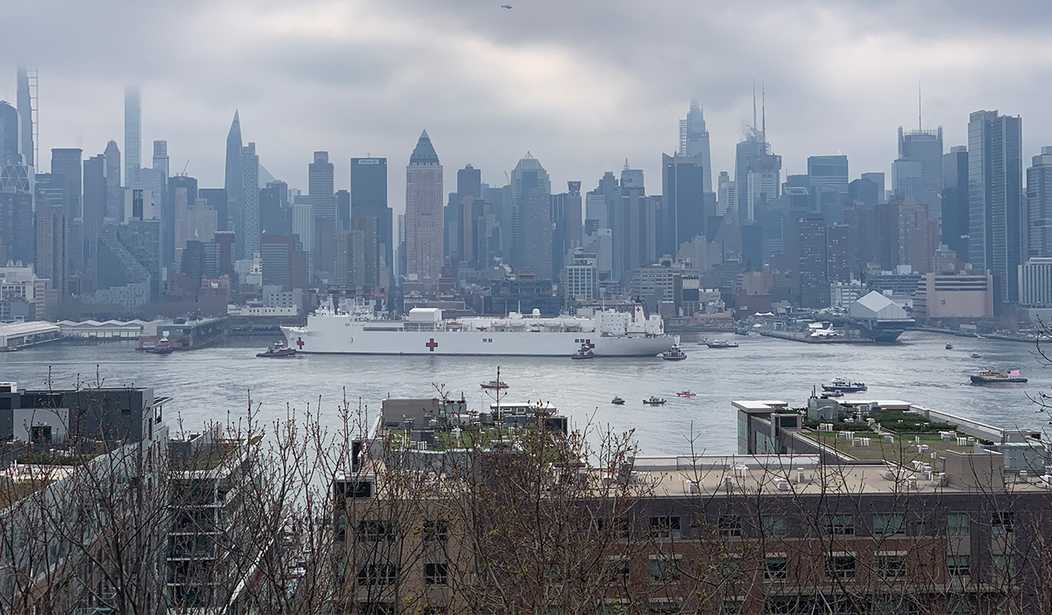All eyes are on Tuesday’s New York City mayoral primary, and for good reason. The city’s mayor’s race is frequently indicative of far more than on-the-ground local sentiment and is often viewed as a key indicator of the nation’s political pulse.
In this race, one issue is towering above the rest — housing.
In New York City — much like most leftist-run cities — rents are soaring, homeownership is increasingly out of reach, and families are leaving in droves. The city is now the second most expensive place to live on Earth, behind only Monaco.
That’s not a coincidence. It’s the direct result of blue cities and states’ years of anti-growth, anti-investment policies, and even many Democrats nationwide have come around to recognizing as much.
But the bigger question is are Democrats as a collective prepared to double down on the failed big-government approach, or are they finally willing to unleash private capital to solve the nation’s housing shortage? The New York City mayor’s race will provide a crucial early test.
One candidate in the race, Assemblyman Zohran Mamdani, represents everything that has gone wrong with New York’s housing politics. He proudly launched his campaign on the claim that “New Yorkers can’t afford to wait for the private sector to solve this crisis.”
That sentence says it all. Mamdani doesn’t believe in the free market’s ability to help. He doesn’t believe institutional investors, private developers, or market forces have a role to play. He’s wrong, and dangerously so.
Mamdani’s plan is rooted in the belief that the public sector can do it all. He wants to triple the city’s production of government-built, union-only, rent-stabilized housing — and he's proposed building 200,000 additional “deeply affordable” units using taxpayer dollars. That level of central control over the housing market isn't the solution. It’s the problem.
Recommended
The public sector simply doesn’t have the resources, agility, or scale to build at the pace the nation needs. State and locality run governmental bodies like the New York Housing Authority can’t even maintain the properties it already owns. Why should anyone believe that they can handle a massive expansion of their responsibilities?
Meanwhile, Mamdani’s broader platform remains openly hostile to private capital. He’s promised to freeze rents for rent-stabilized tenants for all four years of his potential term. That may sound good to activists on TikTok, but it’s economic poison.
A four-year rent freeze would drive small landlords out of business, kill investment in maintenance and upgrades, and grind new development to a halt. It’s a one-way ticket to deteriorating buildings and deepening scarcity.
Even Mamdani’s supposed “pivot” in a June interview, where he said he’s “changed his mind” about private sector involvement, rings hollow. His core housing vision remains government-first, market-last. And make no mistake: freezing rents while sidelining developers is not a path to affordability. It’s a recipe for a permanent shortage.
And Mamdani isn’t alone. This is the same failed thinking coming from Democratic leaders nationwide.
New York Governor Kathy Hochul and progressive legislators have routinely targeted instit
Punishing private investment hasn’t helped. It’s only made the crisis worse.
What New York and the rest of the U.S. needs is the opposite: an agenda that welcomes private capital, accelerates governmental appro
Free-market housing policy isn’t ideological. It’s what’s practical. Cities and states that allow more housing to be built see slower rent growth, more mobility, and greater affordability. Cities that shun private investment and empower bureaucracies end up with stagnation, disrepair, and displacement.
Some candidates in this mayor’s race do seem to understand what’s at stake. One, for example, has proposed building a million new homes over the next decade. Such an ambitious target can’t be met without institutional capital, private developers, and a pro-growth mindset.
It’s time to treat the private sector not as enemies, but as essential partners in solving America’s housing crisis.
Will Democrats as a collective continue to drive away private capital and entrench scarcity? Or will they finally embrace the free-market principles that can get America building again?
Time will tell, but this race will be an early referendum on whether the Left's housing central planning spreads, or finally hits a wall.
Steve Cortes is president of the League of American Workers, a populist right pro-laborer advocacy group, and senior political advisor to Catholic Vote. He is a former senior advisor to President Trump and JD Vance, plus a former commentator for Fox News and CNN.

























Join the conversation as a VIP Member